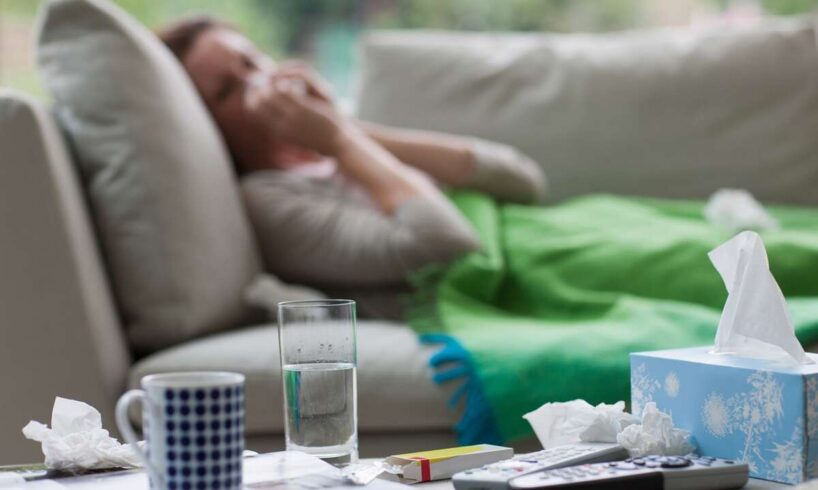
You finally convinced yourselves to get off the couch and work out – you exert yourselves throughout the entire session, never giving up as the trainer observes your every move, and finally you complete the workout, breathless but proud, barely making it home due to tight muscles, and then – suddenly you’re sick. Sound familiar?
This is a widespread phenomenon typically classified as a mild viral infection or flu, but in many cases, it’s actually the immune system’s response to strenuous physical activity, without the involvement of an external pathogen. In other words, the body produces an anti-inflammatory response to exercise. This might sound like the perfect excuse to stop working out, but the opposite is true.
“Blood tests of marathon finishers and intensive care patients would be quite identical”
“The relationship between physical activity and the immune system is complex. Generally, physical activity enhances the immune system. Active people get sick less,” Prof. Dan Nemet, director of the Child Health & Sports Center at Meir Medical Center, explains. “However, physical activity, like any medication, has side effects when you don’t use enough of it or when it’s in the wrong dosage. Physical activity is stress to the body, cortisol and cytokines [small proteins that form the basis for communication between immune system cells] are secreted, just like the effects of illness.”
According to him, the body doesn’t differentiate between types of stress, and when it detects it, it responds by fighting it. Therefore, “blood tests of someone who finished a marathon and someone in intensive care would be quite identical,” surprisingly. “The question is how long the stress persists – in intensive care, we see a response of inflammatory mediators in the body for a long time. A person who has run a marathon typically recovers after several days. This is why muscles ache, you feel weak, etc., so you need to be careful about appropriate rest, sleep, and proper nutrition.”
A comparison of inflammatory responses: intense exercise (top) versus severe infection (bottom), showing similar immune system markers (Screenshot: Journal of Applied Physiology)
However, there is a possibility of an inflammatory response after physical exercise as a result of an infection. “On the other hand, during intense physical activity, you damage all the ‘arms’ of the immune system for the short term, we call it the ‘open window’ theory. During this period, if you’re exposed to a virus, the chance of getting infected is higher. This window is quite short, but it’s significant, because the chance of getting infected with simple infectious diseases like flu is greater than usual.
“The immune response after exercise is significant. For example, if we look at blood tests of a person after running, the number of white blood cells [whose job is to fight foreign bodies] increases, because the body identifies some stress and fights it. However, the more trained you are, the immune system response improves and the inflammatory response decreases.”
A surprising point is that after the stress of exercise and the recovery period, we will often feel better than usual. Therefore, Prof. Nemet explains, there’s careful attention at Meir Medical Center to maintain a hygienic, ventilated environment, and even to vaccinate competitive athletes because their infection chances are higher, due to the “open window” theory. The frequency and intensity of their training increase infection risks.
How to recover properly?
Dr. Nemet emphasizes that the immune system improves with gradual physical activity and an organized training program. “At the same time, it’s important to ensure sufficient recovery time, good nutrition that focuses on all food groups. For the regular athlete, this should be sufficient; there’s no need to overdo it with various supplements. It’s important to remember that rest is no less important than the exercise itself.”
Regular and gradual physical activity can be significant for strengthening the immune system, especially heading into the winter season. However, it’s essential to be aware of the need for balance, meaning that too little physical activity won’t help strengthen the immune system, and neither will overly intensive training that leads to overtraining or training at too high a frequency.
The post Feeling sick? You might work out too much appeared first on www.israelhayom.com.





